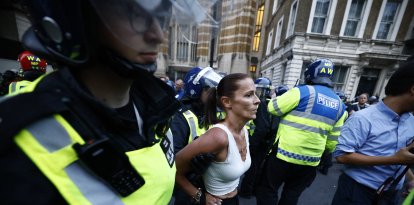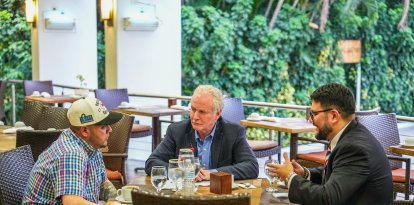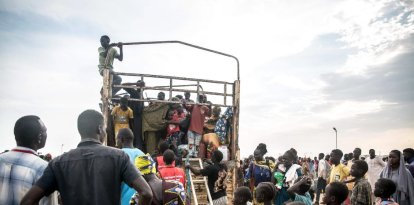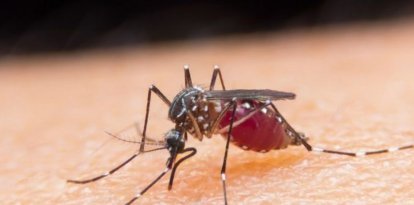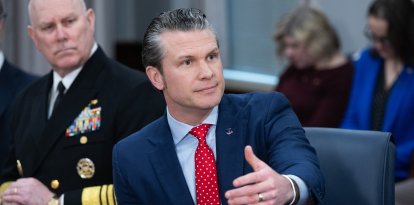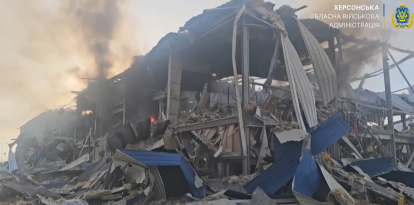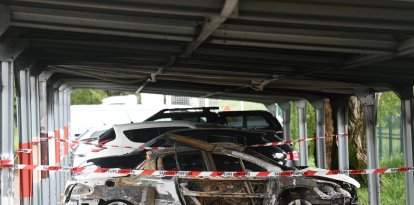Cuba: Massive protests continue against communist regime amid tremendous humanitarian crisis
The marches originated in Santiago, the island's second-largest city. To prevent the news from circulating globally, the dictatorship rushed to cut off internet access and communications.
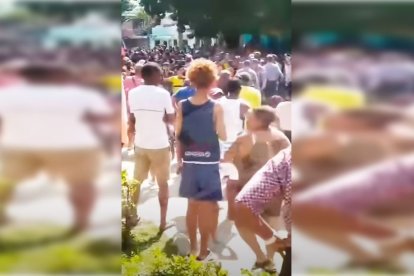
(Screenshot Noticias Cubanet)
Cuba continues to witness massive protests after days without electricity and food. The demonstrations began during the afternoon of Sunday, March 17 in Santiago de Cuba, the island's second largest city. However, they spread to other cities such as Matanza, according to Ciber Cuba. Although the regime of Miguel Diaz-Canel cut the internet and communications to prevent the situation from spreading, local journalists managed to share information about the marches.
The city has been undergoing a severe energy crisis for months, accompanied by a shortage of basic products, food and medicines. The situation became untenable for the neighbors, who decided to take to the streets en masse to make themselves heard. Several Cuban activists supported the protests. This is the case of Yotuel Romero, one of the authors and performers of the song "Patria y Vida," which became the anthem of the 2021 protests.
"I'm in Spain, but this is in Cuba. Patria y vida, carajo," Romero wrote on his Facebook account.
The marches began on Sunday afternoon on the central Carretera del Morro Avenue and 9th Street in Veguita de Galo.
The Ciber Cuba portal reported that the authorities deployed police forces to contain the protesters. As is commonplace, when these types of events occur, Miguel Díaz-Canel's regime cut off communications and internet access to prevent the world from observing what was happening.
Yosmany Mayeta Labrada, an independent journalist living in the United States, shared several images she received from her followers on the island, showing a strong police operation. As shown in one of the videos released, people protested, shouting "electricity and food," although chants were also heard with the slogan of the 2021 mobilizations, "homeland and life."
This situation was foreshadowed by Prisoners Defenders, an NGO that monitors human rights in Cuba, which published a report in January on a possible social outbreak.
"2024 begins with the knowledge of the authorities that the pressure on the people of Cuba is unbearable and could lead to a cycle of massive popular protests again, despite the immense repression which the people already know they would have to face," they wrote on January 13.
The island, which imports 80% of the products it consumes, has become accustomed to hunger and poverty with the regime that has been in place for years, although in recent months, the energy emergency has been added.
It was recently learned that Russia sent a ship to Cuba with some 650,000 barrels of crude oil, cargo valued at almost $50 million so that Díaz-Canel could face the crisis. The power outages cover more than half of the island and have extended to more than 10 hours a day.
The regime accused of murdering the face of dissent in Cuba
This was made known by Senator Rick Scott (R-FL) on his social media, where he demanded from the regime proof of the life of José Daniel Ferrer, a human rights activist and visible face of the opposition on the island.
"We are hearing rumors that the Castro regime assassinated José Daniel Ferrer. His family has not been able to speak to anyone in Cuba today. I demand proof of Jose Daniel's life from the illegitimate Cuban communist regime NOW and POTUS must do the same," the Republican posted on his X account, formerly known as Twitter.
Congresswoman María Elvira Salazar (R-FL) expressed herself along the same lines, condemning the situation and calling for the activist's appearance.
"Today Santiago took to the streets. There lives the patriot José Daniel Ferrer, imprisoned in a Castro prison since 2021. The family has not heard from Ferrer since November 2023. Now there are rumors of his death in prison. We demand proof of life for José Daniel. We want him free!" she said, also on X.
Meanwhile, the Cuban regime acknowledged the crisis on the island but did not hesitate to assure that "this context is being exploited by the enemies of the Revolution for destabilizing purposes."
"In the last hours we have seen how terrorists based in the U.S., who we have denounced on repeated occasions, encourage actions against the internal order of the country," wrote Miguel Díaz-Canel, president of Cuba, on his X account.
"The Cuban people have been deceived by the promise of a better future"
The Observatorio Cubano de Derechos Humanos, a non-profit based in Spain, demanded that the government respect the right to demonstrate and immediately release the people detained on Sunday. The exact number is unknown.
"The Observatorio Cubano de Derechos Humanos (OCDH) holds the Cuban government responsible for the situations that may arise from its repressive actions against the population. Likewise, it holds those who support the Havana regime in international institutions and democratic governments responsible, because they contribute to the maintenance of a status quo that has extended for more than half a century and strangles and continues to extort the suffering Cuban people," said Alejandro González Raga, executive director of the OCDH.
The OCDH also warned that the mass protests on the island "will end in tragedy if there are no political, economic and social changes."
"The Cuban people have lived for decades deceived by the promise of a better future that has not come and will not come, due to the system's inability to make it happen. Added to this is the widespread corruption and indolence in the face of the suffering of others, which have led to the chaotic situation we are currently experiencing. Half a century of failures should be enough," said González Raga.
"The United States supports the Cuban people"
The affirmation came from Brian Nichols, in charge of the State Department for Latin America. On his X account, formerly known as Twitter, the official added that the Cuban government will not be able to meet the needs of its people until it adopts democracy and the rule of law and respects the rights of citizens."
Cuba asked for a meeting to clarify U.S. interference
Benjamin Ziff, Chargé d'Affaires of the U.S. Embassy in Havana, was summoned to a meeting at the Foreign Ministry to evaluate Washington's alleged "interfering" behavior in the protests in Santiago de Cuba.
Carlos Fernández Cossío, the regime's Vice Minister of Foreign Affairs, made the request, conveying to Ziff the "firm rejection of the interference behavior and the slanderous messages of the U.S. government and its embassy in Cuba regarding the internal affairs of the Cuban reality."
RECOMMENDATION
